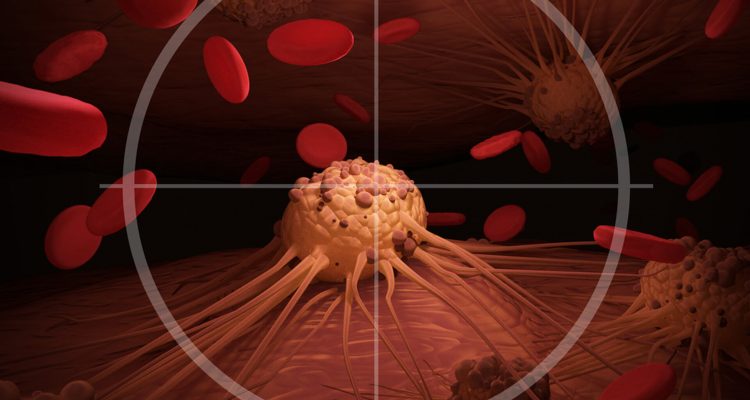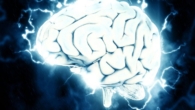
Cheating oncology: scientific advice on how to reduce the risk of developing cancer
0
Last year in Ukraine, about 77,000 people died of cancer, and about 140,000 more residents received a disappointing diagnosis of cancer. This puts oncology in second place after cardiovascular diseases among the most common causes of death in the population.
Ukrainians are used to complaining that bad ecology and Chernobyl are to blame for everything, but in fact, our daily habits bring much more unfavorable factors that can initiate the formation of malignant tumors.
Actually, the term “cancer” is collective. It connects about 100 diseases that originate from different types of body cells. They are all united by a common mechanism: an error suddenly occurs in the DNA of one of the cells during division, and it begins to multiply uncontrollably, forming a malignant tumor. Therefore, each type of cancer has its own treatment protocol, prerequisites and consequences.
It is worth understanding that the development of a malignant disease is not an instantaneous process. A mutation must occur in the small number of genes that prevent uncontrolled cell reproduction. Moreover, a person's immune system should weaken so much that it will not have time to prevent the development of a tumor. All these processes can be influenced by such factors as heredity, bad habits (smoking and alcohol), diet, hormonal status of the body, insufficient physical activity, ultraviolet light, radiation, industrial carcinogens, etc.).
With age, the risk of developing oncology increases. According to the US National Cancer Institute, the largest group of patients with an average age of 66 years. A quarter of newly diagnosed cases of neoplasms occur in people aged 65-74 years. That is why everyone over 60 should regularly undergo diagnosis of the most common oncological diseases, because detecting cancer in the early stages will help to successfully overcome the disease without worsening the quality of a person's future life.
According to statistics, only 30% of factors that increase the risk of oncology are uncontrolled. These include heredity and environmental pollution. However, the latter can be somewhat improved by moving to another city. 70% of adverse factors depend on a person's personal choice. Smoking, drinking alcohol, being overweight, low physical activity and poor nutrition are factors that each person can influence independently. This will not only help reduce the risk of developing cancer, but also improve health and quality of life in general.
Smoking is the most important cause of the development of cancer, which is quite easy to eliminate. Harmful chemicals from tobacco smoke enter the smoker's lungs, from where they are carried throughout the body with the blood. Therefore, smoking increases the risk of developing seven types of different neoplasms approximately 3-5 times. Recent experiments have shown that not only active, but also passive smoking is carcinogenic to humans (the risk of lung cancer in partners of smokers increases by 1.3-1.7 times).
There is a widespread stereotype among the people that drinking alcoholic beverages increases the risk of liver cancer, but in fact it is not only liver cancer. People who drink regularly have a significantly increased risk of at least seven other types of cancer. During intoxication, harmful chemicals appear in the human body, which lead to the gradual accumulation of mutations in cells. Alcohol can even indirectly provoke the appearance of malignant tumors: it leads to an increase in estrogen levels in women, which can provoke breast cancer.
Excess weight also contributes to the development of malignant neoplasms. Studies show that every extra 15 kilograms increases the risk of colon, gall bladder, kidney and liver cancer by 10%. Thick layers of fatty deposits produce hormones and inflammatory factors that contribute to the gradual accumulation of oncomutations in the cells of the human body. This problem can be solved with the help of exercise and proper nutrition.
Physical activity will not only help to get rid of extra pounds, but also, in fact, prevent the development of colon and breast cancer. Perhaps the stabilization of insulin and estrogen levels, which occurs in the human body during sports, helps reduce the risk of developing oncology.
And finally, the diet. About a third of various types of malignant neoplasms are associated with it. Doctors distinguish four main groups of foods, the use of which can increase the risk of developing cancer: red meat (beef, pork, lamb), fried and processed meat products, salted or pickled food, and sugar.
The heme iron in red meat damages cells in the digestive tract and causes inflammation. It also promotes the synthesis of carcinogenic substances by intestinal microflora bacteria. The predominance of red meat in the diet leads to chronic inflammation of the digestive tract, which can eventually develop into malignant tumors.
No less dangerous is the so-called processed meat. This includes all kinds of sausages, ham, bacon and other goodies from the sausage pavilion. They are dangerous with nitrates and nitrites, which manufacturers add to meat to extend its shelf life. In our body, nitrates and nitrites are converted into N-nitro compounds, which are actually carcinogens —substances that cause cancer.
Unfortunately, meat cooked at high temperatures (on an open fire, grill or barbecue) also contains carcinogens – heterocyclic and polycyclic amines. Therefore, doctors advise to use boiled, oven-baked or steamed meat.
Foods with high salt content can contribute to the development of stomach cancer. The salt damages his mucous membrane, leading to ulcers and tumors. The results of some studies also show that salt improves the living conditions of the bacterium Helicobacter pylori, which is a known cause of ulcers and stomach tumors.
Indulging in sweets and white bread increases the risk of prostate cancer by 88% and lung cancer by 50%. In this regard, foods with a high glycemic index are particularly dangerous. It shows how quickly carbohydrates turn into glucose in the blood. Such foods include: sugary soft drinks, fruit juices and pizza, but legumes (beans, beans, lentils, peas, etc.), whole grain flour products have a low glycemic index and can reduce the occurrence of prostate and rectal cancer by 32% intestines.
Here are some simple tips that will help reduce the likelihood of developing cancer, even for people with a genetic predisposition. If these small changes become a habit, then over time their implementation will not require significant cognitive effort, and the quality of your life will significantly improve.
1. Get rid of bad habits. Quitting smoking is much easier if you replace one habit with another. For example, carry nuts or your favorite fruit with you and eat them every time you reach for a cigarette. The same applies to alcohol. There really is no safe dose, so try not to use, or minimize the amount you drink as much as possible.
2. Get rid of extra pounds and try to maintain a healthy weight in the future.
3. Move as much as you can. Get off the bus a few stops earlier and walk, go for a run in the evening, go to yoga, dancing, or swimming. Find an activity that brings you the most pleasure and add it to your daily routine.
4. Build your diet so that it is rich in seasonal fruits and vegetables, healthy fats from fish and oils. Buy fresh meat, marinate it with spices and bake it in the oven. Try to eat less red meat, replacing it with chicken, turkey, or rabbit meat. Also, give preference to cereals and whole grain bread as opposed to white, and buy nuts and dried fruits instead of sweets.
5. Always get enough sleep. Regular and healthy sleep for 7-8 hours helps to prevent many types of cancer.
6. At least in summer, always use sunscreen when going outside. This will help reduce the risk of skin cancer and melanoma.
6. If you know or suspect you have a hormone problem, see an endocrinologist. He will advise how to normalize your hormonal balance.
7. Get vaccinated against hepatitis B and human papillomavirus. This will prevent the development of liver and cervical cancers associated with these viruses.
8. Make it a rule to have regular check-ups with your doctor. Even when nothing bothers you. In today's world, many types of cancer are successfully treated if they are detected in the early stages.









Leave a Reply